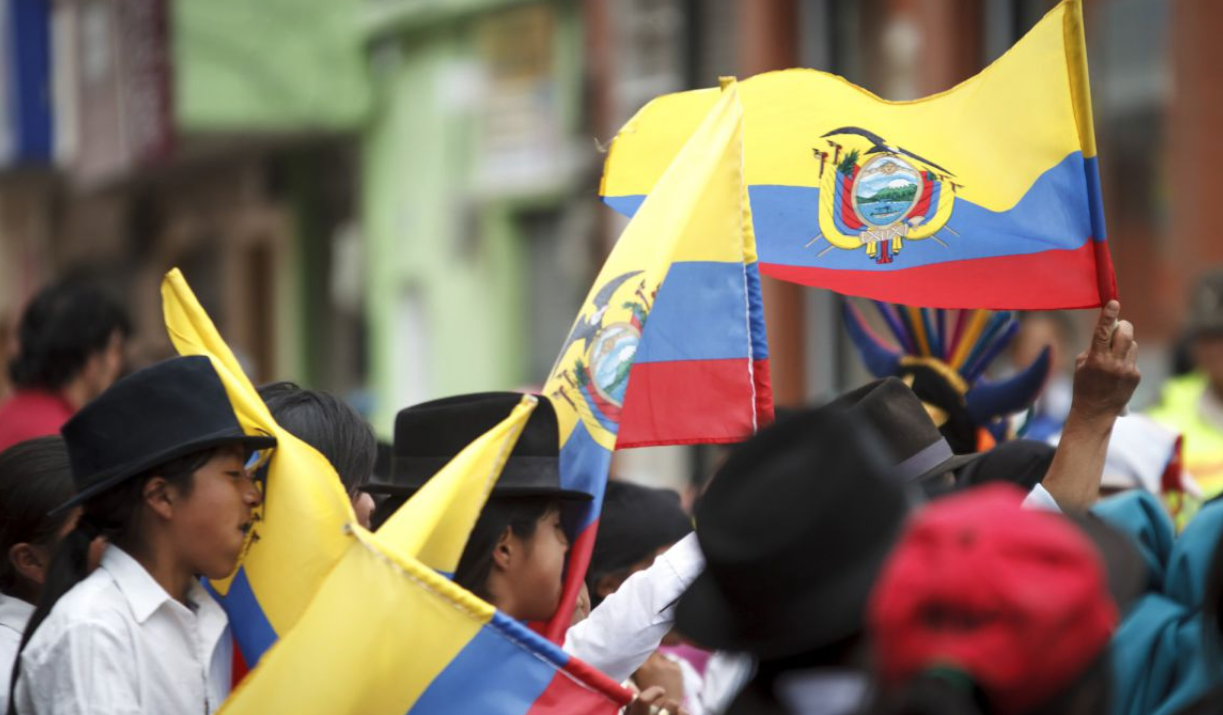In a controversial interview given to the Spanish newspaper El País on June 7, former president of Ecuador, Rafael Correa, insisted that he will return to the country to issue a new Constitution, reorganize the state and annul his trials. Mr. Correa affirmed that he has the electoral capital to return and become president. A few days later, on Tuesday, June 13, the presidential candidate for Correa’s party, Luisa Gonzalez, registered her political candidacy amidst claims of “only one round”, referring to the fact that she will win the election without going through the ballot.
All pollsters agree that Correism enjoys a support of around 25%, what some call “the hard vote of Correism”. Paradoxically, the same pollsters agree that the margins of indecision, two weeks before the elections in Ecuador, after the dissolution of Congress by President Lasso, constantly remain at 70%. How can there be a disciplined vote with such a small margin of decided voters?
In this electoral game, there are multiple persuasion maneuvers that, put in black and white, are not what they claim to be. According to studies, many voters like to win and, very often, they bet on the winner of the polls, thus generating a false consensus effect. What happens when these polls do not reflect reality?
For Christopher J. Anderson of the London School of Economics and Andrew J. Lotempio of Binghamton University, in their study on the relationship between winners and political trust, “Winning, Losing and Political Trust in America,” a vote is not just an act of trust, but the intention to trust that someone will win the contest.
Voting for the winner has been shown to have a positive influence on other political attitudes, such as feelings of receptiveness to government, satisfaction with democracy, and people’s willingness to engage in political activism. Voters favor any of the possible options, with the intention of becoming materially or effectively attached to the political offer they hope to see win.
Anderson and Lotempio argue that the experience of winning or losing influences how voters perceive the political system. Winning or losing, and being in the majority or in the minority, are concepts that people use to understand the political environment and that affect their subsequent attitudes. Voters even switch candidates when a candidate is not likely to win, and this phenomenon has been called “strategic voting.”
The director of the Center for the Study of Voting, Elections and Democracy at the University of New Mexico, Lonna Rae Atkeson, said in her study “Sure, I Voted for the Winner! Overreport of the Primary Vote for the Party Nominee in the National Election Studies” that people are more likely to vote for their second preference when they perceive that their first choice has little chance of winning. This effect is especially associated with the “wasted vote” category or the voter’s desire not to waste his or her vote.
According to Rae Atkeson, voters have three options when faced with an election: a favorite, a second choice, or annulment/abstention. The voter always expects his or her favorite to be the winner. In the certainty that the favorite will not win, the voter changes his decision for the one he believes to be the winner, with whom he makes his second choice. If the first two possibilities do not happen, the voter abstains from voting or cancels his vote.
For experts Vicki G. Morwitz and Carol Pluzinski of New York University, voter exposure to polls changes preferences for candidates. Some studies even call this effect of influencing majority opinion the “bandwagon effect” or “bandwagon effect.”
An individual system of ideas finds a state of cognitive consistency when the average voter and the poll voter agree. This coincidence is called a false consensus error. Polls provide voters with information about how the electorate feels about who should be president and thus function as a reality constraint on voters’ expectations about the outcome of the election. Then, when a voter is exposed to this information and becomes convinced that their candidate will not win, they may change their mind to bet on “the winning horse” in the contest.
However, many voters overestimate the likelihood of victory for their preferred candidate. For example, according to Morwitz and Pluzinski, during the week leading up to the 1992 U.S. presidential election, 68.9% of George Bush’s supporters had a false belief that other voters shared their support for their candidate, creating a pattern of false consensus that was reflected in the polls. But Bill Clinton won the election.
When voters are in a dissonant or undecided state prior to exposure to polls and when polls confirm expectations about the outcome of the election, many voters change their preferences to be consistent with both their expectations and the poll information. This is where manipulation can occur.
Whenever polls are provided to voters whose attitudes toward candidates are changeable, they can alter their attitudes and change voting behavior. Depending on preference and expectations, Morwitz and Pluzinski say that polls can serve to reinforce existing expectations and attitudes, alter voters’ expectations about who will win the election, or cause changes in attitudes toward candidates.
Does Correism have 25% of the hard vote against 70% of undecided voters? No, it does not. If we compare the 25% of preference with a decision margin of 30%, the proportional would be 7.5% of “faithful vote”. On the contrary, the 20% or 25% that is attributed to it could really be its electoral ceiling if this figure is compared with the results of the most recent municipal elections in Ecuador.
Numbers are more categorical than stories in politics. Insisting on the false consensus of a hard vote is the strategy of those who want to show themselves as winners. Will this narrative maneuver work?
*Translated from Spanish by Micaela Machado Rodrigues











